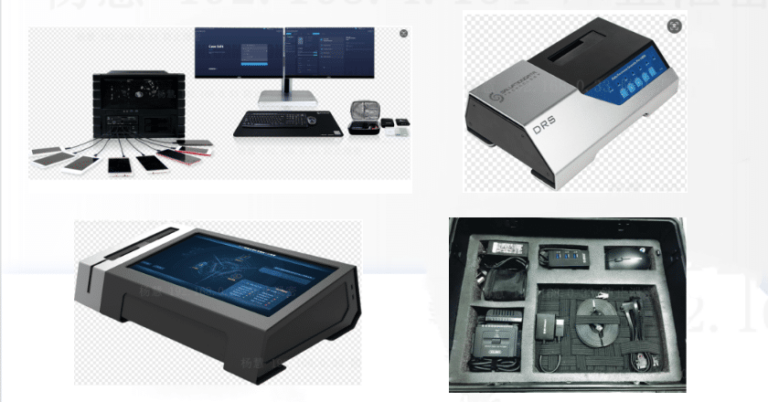How Do Modular Data Centers Enhance Scalability and Flexibility?
Modular data centers provide innovative solutions to meet the evolving demands of modern businesses. Their design and functionality offer unmatched scalability and flexibility, which are critical in today’s fast-paced tech landscape. Companies now, more than ever, require data infrastructure that can grow and adapt quickly to changing needs without massive overhauls. That’s where modular data centers shine.These self-contained data units come pre-fabricated with all necessary components and can be delivered, deployed, and expanded with ease compared to traditional data centers. Businesses can benefit from faster time-to-market, which means they can more swiftly respond to new opportunities and demand.This blog delves into the details of how modular data centers enhance scalability and flexibility, highlighting their structural components, scalability benefits, design flexibility, cost-effectiveness, and practical applications in real-world scenarios.
Understanding Modular Data Centers
What Is a Modular Data Center?
A modular data center is a portable, self-contained data unit that includes integrated power, cooling, and networking components. These centers are designed to be moved and re-deployed conveniently wherever they are needed. Often resembling shipping containers, these modular units can be stacked or arranged in various configurations to adapt to different space constraints and requirements. Modular data centers are pre-engineered and pre-fabricated in a factory setting, ensuring consistent quality, standardization, and a reduced likelihood of errors during assembly and deployment.By being largely pre-assembled, these data centers significantly cut down on the deployment timelines compared to traditional data centers—sometimes by as much as 50%. This rapid deployment capability provides businesses with the agility to scale their IT infrastructure in sync with demand.
Key Components of Modular Data Centers
Modular data centers come equipped with several vital components, each designed to support the efficient operation of the unit:
- Power Systems: These include power distribution units (PDUs), backup power supplies, and generators to ensure uninterrupted power for critical operations.
- Cooling Infrastructure: Efficient cooling systems are integrated to maintain optimal operating temperatures and protect sensitive equipment.
- Network Connections: High-speed networking capabilities ensure robust connectivity internally and externally.
- Security Features: Physical security measures, such as secure enclosures, and cybersecurity measures are implemented to protect data.
- Monitoring Systems: Comprehensive monitoring tools are used to track performance and manage the health of the data center.
By integrating these key components into each unit, modular data centers provide a ready-to-go solution that aligns with business needs promptly and effectively.
The Scalability Advantage of Modular Data Centers
Growing with Your Business Needs
One of the most compelling benefits of modular data centers is their ability to scale in parallel with the growth of a business. Unlike traditional setups, which often require substantial foresight and investment to accommodate future growth, modular data centers allow for more incremental scaling. Businesses can start with a smaller, manageable setup and expand by adding modules as demand increases. This kind of horizontal scaling ensures that no resources are wasted on under-utilized infrastructure, and scaling can happen dynamically.
Scaling Up with Minimal Downtime
Another significant advantage is the ease of scaling up with minimal downtime. As new modules are pre-fabricated and pre-tested, they can be installed and integrated with the current infrastructure smoothly. This plug-and-play nature means new units can be added and brought online with little to no service interruption, ensuring that the business continues to operate seamlessly while scaling its data infrastructure.
Flexibility in Design and Deployment
Customizable Configurations for Various Requirements
Flexibility in design is a hallmark of modular data centers. They can be tailored to meet diverse industry-specific needs. For instance, different modules can be designed with varying cooling solutions or power capacities. This customization ensures that the data center configuration precisely matches operational requirements, whether it’s for a financial institution requiring high security, or a tech company needing robust computational power.

Easy Relocation and Expansion Options
The physical mobility of modular data centers offers a unique advantage. These units can be relocated to different sites as per the changing dynamics of the business. For companies with multiple sites or dynamic project needs, this mobility can translate to significant cost savings and operational flexibility. Moreover, expanding a modular data center usually involves minimal logistical challenges, as additional units can be easily integrated into the existing layout, either by stacking vertically or expanding horizontally.
Cost-Effectiveness of Modular Solutions
Reducing Operational Costs Through Scalability
Scalability in modular data centers contributes to reduced operational costs. Since organizations only need to invest in the infrastructure as required, they avoid the costs associated with maintaining a large, under-utilized facility. Additionally, modular systems often come with optimized energy management systems that further cut down operational costs by enhancing overall efficiency.
Lower Initial Capital Investment
The upfront costs of launching a modular data center are significantly lower compared to traditional data centers. Businesses don’t need to invest heavily in building a large-scale facility from the ground up. Instead, they can start with a smaller investment and scale up over time. This lowers the entry barrier for gaining advanced data infrastructure and helps businesses manage their budgets more effectively.
Real-World Applications of Modular Data Centers
Use Cases Across Different Industries
Modular data centers are versatile enough to be used across multiple industries. Healthcare, finance, education, and telecommunications are notable sectors where these data centers have demonstrated considerable benefits. For instance, in healthcare, modular data centers can support the rapidly growing amount of data from medical records and research. In telecommunications, they offer the necessary scalability and mobility for handling varying loads of data transmission and storage needs.
Conclusion
Modular data centers represent a significant advancement in how businesses can manage their data infrastructure. They offer unparalleled scalability and flexibility that meet the rapidly evolving demands of today’s digital landscape. Through customizable configurations and easy deployment, organizations can tailor their IT infrastructure to fit specific needs and budget constraints, ensuring operational efficiency and reduced costs. Real-world applications illustrate their versatility and effectiveness, showcasing how various industries can leverage modular data centers to enhance their data handling capabilities and remain competitive.In conclusion, adopting modular data centers equips businesses with a robust, agile, and cost-efficient solution to scale operations and adapt swiftly to market changes. As industry needs continue to grow and diversify, modular data centers are poised to become a pivotal component of modern business infrastructure.





